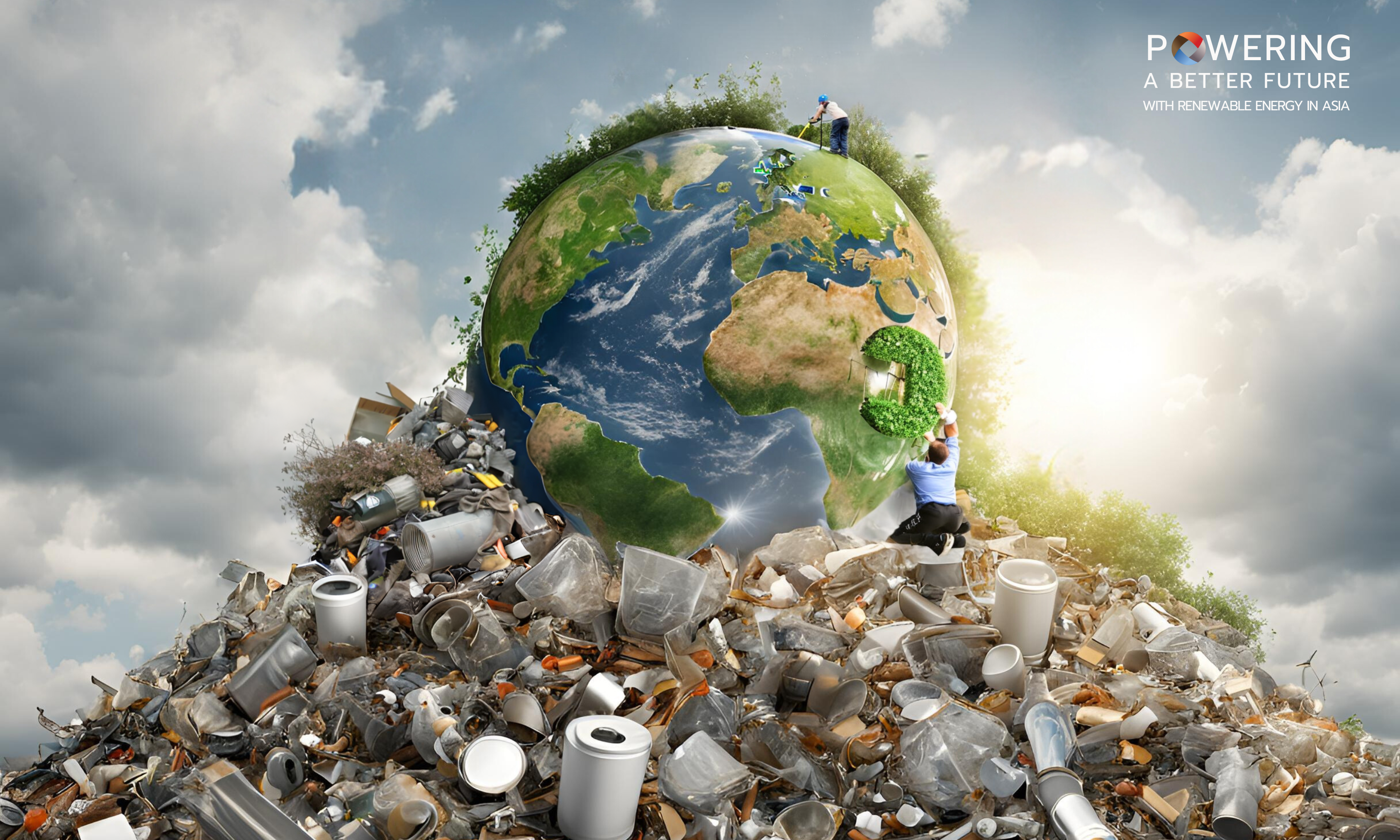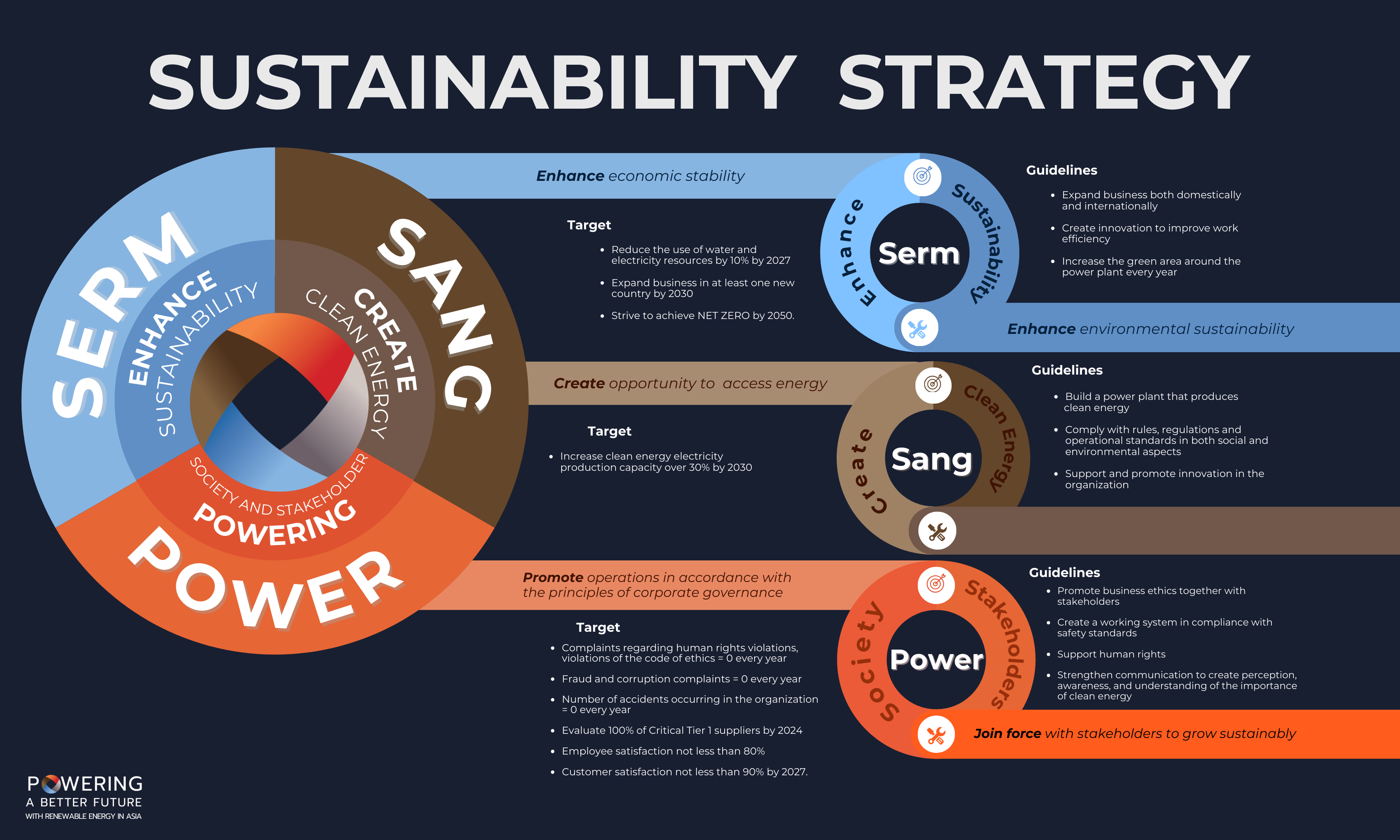Articles
Waste-to-energy plant : Reducing waste landfill and processing waste into renewable energy
17 May 2024

What is a waste-to-energy plant?
A waste-to-energy plant is an alternative energy power plant that can generate electricity from municipal waste incineration. It combines the disposal of municipal waste and the generation of renewable energy in the same process. A waste-to-energy plant can be another way to solve sustainable energy problems with renewable energy and reduce the dependence on traditional energy, such as fossil energy, along with the circular economy system. This plant utilizes waste that needs disposal and maximizes existing resources.
Benefit of a waste-to-energy plant
Solving the problem of overflowing waste:
Community waste is another major environmental problem. At present, the amount of waste is increasing steadily. According to data from the Pollution Control Department in 2023, Thailand has reached 26.95 million tons of solid waste, continually increasing from last year. This reflects the problem of the growing amount of waste. Without the right way of disposal, the waste may backfire on the environment and the community in the long run. A waste-to-energy plant is a waste disposal method that, with the right and standard procedures, can solve pollution problems from waste.
Reducing “landfill waste”:
One of the methods for waste disposal is landfill. It is the primary method for disposing of almost all kinds of waste. Waste landfills shall strictly comply with standards to prevent contaminants and other impacts. Non-standard landfills can cause a wide range of contamination and long-term impacts, including land surface and groundwater contamination from subsurface composting and accumulation of waste. Therefore, a waste-to-energy plant is one of the processes that can reduce traditional waste disposal, utilize and create value for waste in the circular economy, and alleviate the potential environmental problem of landfills.
Circular Economy:
Waste management through waste-to-energy plants not only eliminates the growing amount of waste generated every single day, but also creates value for waste. It is the founding of a circular economy for communities by creating a new life for waste by converting it to renewable energy. At the same time, this method can help solve the problem of overflowing waste and reduce landfills, resulting in energy sustainability for society.
SSP Waste-to-energy Plant Projects
SSP waste-to-energy plants in Thailand have been constructed according to engineering standards to prevent environmental impacts from processing waste into electricity. The plants are designed to store waste inside the closed building within an enclosed wall to prevent the spread of dust and odor from waste into the environment. The interior of the waste storage buildings uses negative pressure air circulation. The air pollution treatment system has been designed to control the air emissions caused by the burner of the project under the standard criteria specified by the Announcement of the Ministry of Natural Resources and Environment before releasing them into the environment. In addition, the project has effective water management without any wastewater discharging to the environment. 100% of the effluent is recycled within the power plants. Currently, two projects have already started. First, the SSP waste-to-energy plant at Mueang Khong Sub-district Administrative Organization, Nakhon Ratchasima Province, has a capacity of 9.9 megawatts with a total investment of 2,289.6 million baht. Second, the SSP waste-to-energy plant at Ban Song Sub-District Municipality, Surat Thani Province, has a capacity of 9.9 megawatts with a total investment of 2,283.4 million baht. Both power plant projects are expected to start commercial electricity trading by 2026.
บทความอื่น ๆ

SSP Sustainability Strategy
24 May 2024

Why should anyone care about ESG today?
19 March 2024



